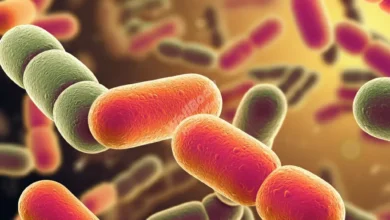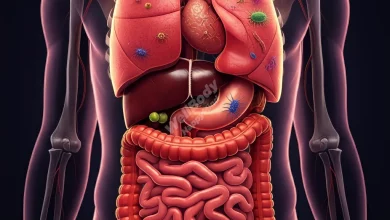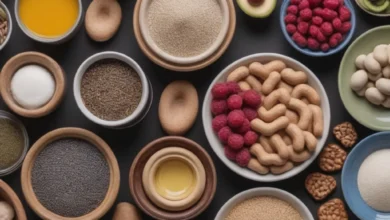Breaking Down the Gut Barrier: Strategies to Enhance Digestion

Have you ever wondered why some days you feel energized and vibrant, while on others you’re sluggish and uncomfortable? The answer might lie in your gut. Your digestive system plays a crucial role in your overall well-being, and at the heart of it all is something called the gut barrier. Let’s explore how this tiny but mighty defender impacts your health and discover strategies to boost your digestive prowess.
I. Introduction
Imagine your gut as a bustling city. The gut barrier is like the wall surrounding this city, protecting it from invaders while allowing valuable resources to enter. When this barrier is strong, you feel great. But when it’s weak, all sorts of health issues can arise.
In this post, we’ll break down the mystery of the gut barrier and share practical tips to enhance your digestion naturally. Whether you’re dealing with occasional tummy troubles or looking to boost your overall health, you’re in the right place!
II. Understanding the Gut Barrier
What exactly is this gut barrier we’re talking about? Let’s dive in!
A. Definition and function of the gut barrier
The gut barrier is a complex system that lines your intestines. Its main job? To act as a gatekeeper, deciding what gets absorbed into your body and what doesn’t. It’s your first line of defense against harmful substances while ensuring you get the nutrients you need.
B. Components of the gut barrier
Your gut barrier isn’t just a single layer. It’s made up of several key players:
- Mucus layer: This slippery substance coats your intestines, trapping potential troublemakers before they can cause harm.
- Epithelial cells: These tightly packed cells form a physical barrier, like bricks in a wall.
- Tight junctions: These are the “mortar” between the epithelial cell “bricks,” sealing the gaps to prevent unwanted substances from sneaking through.

C. Importance of a healthy gut barrier
A strong gut barrier is crucial for three main reasons:
- Protection: It keeps harmful bacteria, toxins, and undigested food particles from entering your bloodstream.
- Nutrient absorption: It allows essential nutrients to pass through, ensuring your body gets what it needs to thrive.
- Immune system support: About 70% of your immune system is in your gut. A healthy barrier helps your body distinguish between friend and foe.
III. Common Issues Affecting Gut Barrier Function
Even the strongest walls can develop cracks. Let’s look at some common problems that can weaken your gut barrier:
A. Leaky gut syndrome
Imagine the tight junctions in your gut barrier loosening, creating tiny holes. This is essentially what happens in leaky gut syndrome.
Symptoms of leaky gut may include:
- Digestive issues (bloating, gas, diarrhea)
- Food sensitivities
- Skin problems (acne, eczema)
- Fatigue
- Joint pain
Potential causes of leaky gut:
- Poor diet (high in sugar and processed foods)
- Chronic stress
- Overuse of certain medications
- Excessive alcohol consumption
- Environmental toxins
B. Inflammatory bowel diseases
Conditions like Crohn’s disease and ulcerative colitis can severely damage the gut barrier. These chronic diseases cause inflammation in your digestive tract, leading to symptoms like abdominal pain, diarrhea, and weight loss.
C. Food sensitivities and allergies
When your gut barrier is compromised, partially digested food particles can slip through, potentially triggering immune responses. This can lead to food sensitivities or even allergies.
D. Stress and its impact on gut health
Ever felt butterflies in your stomach when you’re nervous? That’s your gut-brain connection at work. Chronic stress can weaken your gut barrier, making you more susceptible to digestive issues and other health problems.

IV. Dietary Strategies to Enhance Digestion
Now that we understand the gut barrier, let’s explore how we can strengthen it through our diet. The foods we eat play a crucial role in maintaining a healthy gut barrier function.
A. Fiber-rich foods
Fiber is like a broom for your gut, keeping things moving smoothly. There are two main types:
- Soluble fiber: Dissolves in water, forming a gel-like substance that slows digestion.
- Insoluble fiber: Doesn’t dissolve, adding bulk to stool and helping food pass through your digestive system.
Both types are beneficial for gut health. They feed your good gut bacteria and help maintain a strong barrier.
High-fiber foods to include in your diet:
- Fruits (apples, berries, pears)
- Vegetables (broccoli, carrots, Brussels sprouts)
- Whole grains (oats, quinoa, brown rice)
- Legumes (beans, lentils, chickpeas)
- Nuts and seeds (almonds, chia seeds, flaxseeds)

B. Probiotic-rich foods
Probiotics are live beneficial bacteria that support your gut health. They help maintain the balance of good bacteria in your gut, strengthening your gut barrier.
Natural sources of probiotics:
- Yogurt (look for “live active cultures” on the label)
- Kefir
- Sauerkraut
- Kimchi
- Kombucha
- Miso
- Tempeh
C. Prebiotic foods
While probiotics are the beneficial bacteria, prebiotics are the food that these bacteria eat. Including prebiotic foods in your diet helps your good gut bacteria thrive.
Examples of prebiotic foods:
- Garlic
- Onions
- Leeks
- Asparagus
- Bananas (especially when slightly unripe)
- Jerusalem artichokes
- Chicory root
D. Anti-inflammatory foods
Chronic inflammation can weaken your gut barrier. Eating anti-inflammatory foods can help combat this issue and support overall gut health.
List of anti-inflammatory foods:
- Fatty fish (salmon, sardines, mackerel)
- Leafy greens (spinach, kale, collards)
- Berries
- Turmeric
- Ginger
- Extra virgin olive oil
- Walnuts and other nuts

E. Foods to avoid or limit
Just as some foods support gut health, others can irritate your gut and weaken the barrier. Here’s a table of common gut irritants and why they can be problematic:
| Food/Drink | Potential Impact on Gut Health |
|---|---|
| Processed foods | Often high in additives and low in nutrients, can disrupt gut bacteria balance |
| Refined sugar | Feeds harmful bacteria, can lead to inflammation |
| Artificial sweeteners | May negatively alter gut bacteria |
| Alcohol | Can irritate the gut lining and disrupt bacterial balance |
| Caffeine | May increase gut permeability in some people |
| Gluten | Can cause issues for those with celiac disease or gluten sensitivity |
| Dairy | May be problematic for those with lactose intolerance |
V. Lifestyle Habits for Optimal Digestion
While diet plays a crucial role in gut health, lifestyle factors are equally important. Let’s explore some habits that can enhance your digestion and strengthen your gut barrier.
A. Proper hydration
Water is essential for nearly every bodily function, including digestion. It helps break down food, absorb nutrients, and keep things moving through your digestive tract.
Tips for staying hydrated:
- Aim for at least 8 glasses of water per day
- Carry a reusable water bottle with you
- Eat water-rich foods (cucumbers, watermelon, zucchini)
- Set reminders on your phone to drink water regularly

B. Mindful eating practices
How you eat can be just as important as what you eat. Mindful eating can significantly improve your digestion.
- Chew thoroughly: Aim for 20-30 chews per bite. This breaks down food more effectively and signals your body to prepare for digestion.
- Eat slowly: Take your time and savor each bite. This can help prevent overeating and reduce digestive discomfort.
- Avoid distractions: Turn off the TV and put away your phone. Focus on your meal and the act of eating.
C. Stress management techniques
Chronic stress can wreak havoc on your gut health. Managing stress is crucial for maintaining a strong gut barrier.
Effective stress-reduction methods:
- Deep breathing exercises
- Meditation or mindfulness practice
- Regular physical activity
- Yoga
- Spending time in nature
- Engaging in hobbies
- Getting enough sleep

D. Regular exercise
Physical activity isn’t just good for your heart and muscles—it’s great for your gut too! Exercise can help stimulate digestion, reduce inflammation, and promote diversity in your gut bacteria.
Recommended types and duration of exercise:
- Aim for at least 150 minutes of moderate-intensity exercise per week
- Include a mix of cardio (walking, swimming, cycling) and strength training
- Try gentle exercises like yoga or tai chi for stress relief and improved digestion
- Start slowly and gradually increase intensity and duration
VI. Supplements and Natural Remedies
While a healthy diet and lifestyle form the foundation of good gut health, certain supplements and natural remedies can provide additional support. Always consult with a healthcare professional before starting any new supplement regimen.
A. Digestive enzymes
Digestive enzymes help break down food, making it easier for your body to absorb nutrients.
Types of digestive enzymes:
- Protease (breaks down proteins)
- Lipase (breaks down fats)
- Amylase (breaks down carbohydrates)
Consider enzyme supplements if you experience frequent bloating, gas, or indigestion after meals.
B. Glutamine
Glutamine is an amino acid that plays a crucial role in maintaining the integrity of your gut barrier.
Food sources of glutamine:
- Beef
- Chicken
- Fish
- Eggs
- Dairy products
- Cabbage
- Spinach
If you’re considering glutamine supplements, discuss the appropriate dosage with your healthcare provider.
C. Herbal teas for digestion
Certain herbal teas can soothe your digestive system and support gut health.
Beneficial teas and their properties:
- Peppermint: Relieves bloating and gas
- Ginger: Reduces nausea and inflammation
- Chamomile: Calms digestive discomfort
- Fennel: Eases constipation and bloating
- Marshmallow root: Soothes the digestive tract

D. Bone broth
Rich in amino acids and minerals, bone broth can help repair and strengthen your gut lining.
How to prepare bone broth:
- Simmer bones (beef, chicken, or fish) in water for 12-24 hours
- Add vegetables and herbs for extra flavor and nutrients
- Strain and enjoy as a warm drink or use as a base for soups and stews
VII. Medical Approaches to Improve Gut Health
While many gut issues can be addressed through diet and lifestyle changes, some may require medical intervention.
A. Working with a healthcare professional
If you’re experiencing persistent digestive issues, consult a gastroenterologist or a functional medicine practitioner. They can help identify underlying causes and develop a tailored treatment plan.
B. Diagnostic tests for gut health assessment
Your doctor may recommend various tests to assess your gut health, such as:
- Stool tests
- Breath tests
- Blood tests
- Endoscopy or colonoscopy
C. Potential treatments for specific gut issues
Depending on your condition, treatments may include:
- Medications (e.g., antibiotics, anti-inflammatories)
- Dietary interventions (e.g., elimination diets)
- Probiotics or prebiotics
- Stress reduction therapies

VIII. The Gut-Brain Connection
Your gut and brain are in constant communication, influencing each other in profound ways.
A. The gut-brain axis
This bidirectional communication system links your emotional and cognitive centers in the brain with your intestinal functions. It’s why stress can upset your stomach, and digestive issues can affect your mood.
B. How improving gut health can benefit mental well-being
- Better nutrient absorption can support brain health
- A balanced gut microbiome may help reduce anxiety and depression
- Improved digestion can lead to better sleep and increased energy levels

IX. Implementing a Gut-Healthy Lifestyle
Changing habits can be challenging, but with the right approach, you can successfully improve your gut health.
A. Tips for gradual dietary changes
- Start by adding one new gut-friendly food to your diet each week
- Slowly reduce processed foods and replace them with whole foods
- Experiment with new recipes to keep things interesting
B. Creating a personalized gut health plan
- Keep a food and symptom diary to identify trigger foods
- Set realistic, achievable goals
- Regularly review and adjust your plan as needed
C. Importance of consistency and patience
Remember, healing your gut takes time. Be patient with yourself and celebrate small victories along the way. Consistency is key to long-term gut health.
X. Conclusion
Your gut barrier is a remarkable system that plays a crucial role in your overall health and well-being. By adopting a holistic approach that includes a balanced diet, stress management, regular exercise, and targeted supplements when necessary, you can significantly enhance your digestive health and strengthen your gut barrier.
Remember, everyone’s gut is unique. What works for one person may not work for another. Listen to your body, be patient with the process, and don’t hesitate to seek professional help if needed.
Now that you’re armed with these strategies to enhance digestion and improve gut barrier function, it’s time to take action. Start small, be consistent, and watch as your digestive health—and overall well-being—transform. Your gut (and the rest of your body) will thank you!
Are you ready to prioritize your digestive well-being? Which strategy will you implement first to support your gut health journey? Share your thoughts and experiences in the comments below, and let’s embark on this path to better health together!




